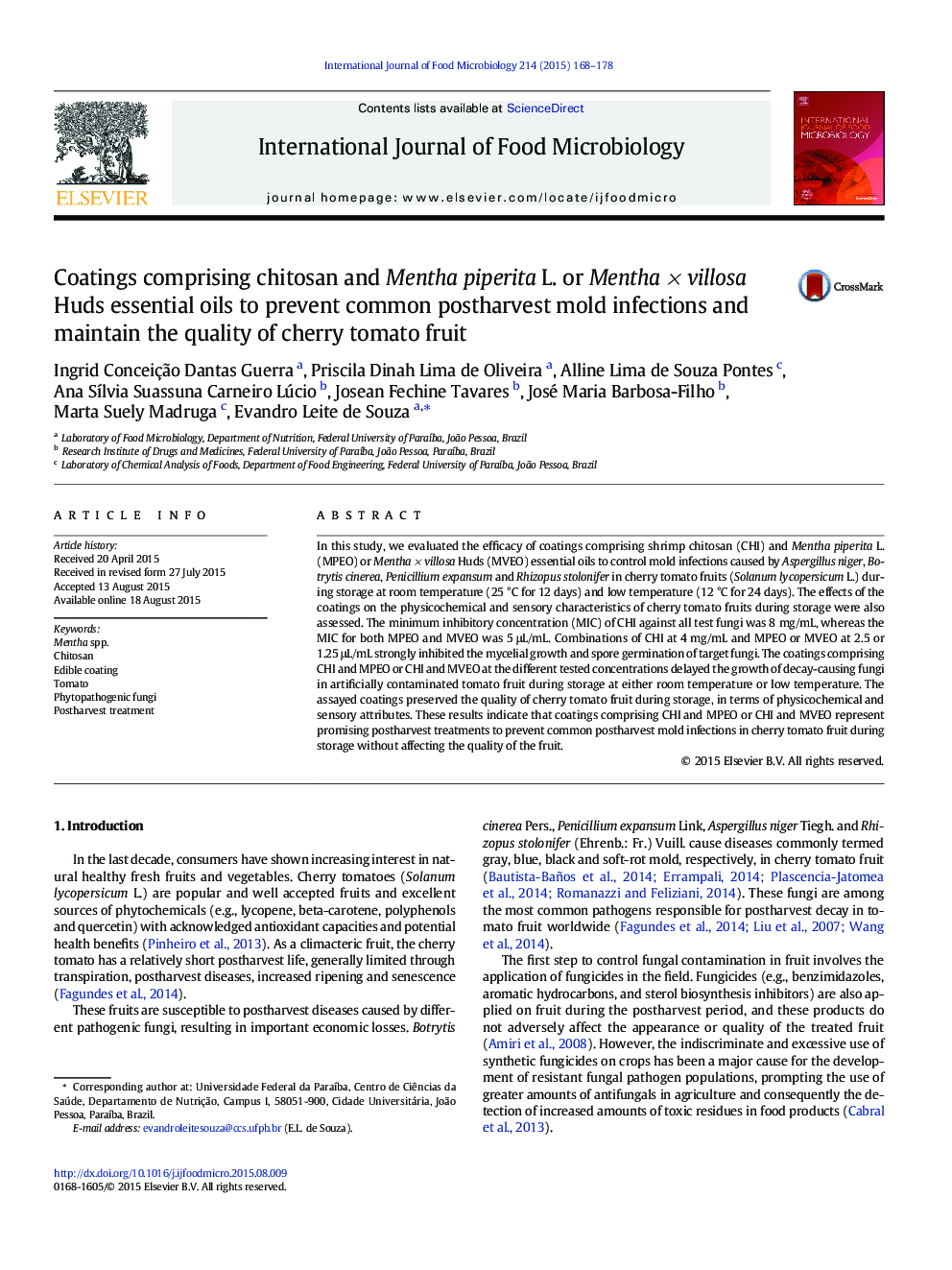| Article ID | Journal | Published Year | Pages | File Type |
|---|---|---|---|---|
| 4366472 | International Journal of Food Microbiology | 2015 | 11 Pages |
•The antifungal effects of chitosan and Mentha spp. essential oils are shown.•Chitosan and Mentha spp. essential oils reduced mycelial growth and spore germination.•Coatings comprising chitosan and Mentha spp. essential oils inhibited fruit molds.•The tested coatings preserved tomato quality parameters.
In this study, we evaluated the efficacy of coatings comprising shrimp chitosan (CHI) and Mentha piperita L. (MPEO) or Mentha × villosa Huds (MVEO) essential oils to control mold infections caused by Aspergillus niger, Botrytis cinerea, Penicillium expansum and Rhizopus stolonifer in cherry tomato fruits (Solanum lycopersicum L.) during storage at room temperature (25 °C for 12 days) and low temperature (12 °C for 24 days). The effects of the coatings on the physicochemical and sensory characteristics of cherry tomato fruits during storage were also assessed. The minimum inhibitory concentration (MIC) of CHI against all test fungi was 8 mg/mL, whereas the MIC for both MPEO and MVEO was 5 μL/mL. Combinations of CHI at 4 mg/mL and MPEO or MVEO at 2.5 or 1.25 μL/mL strongly inhibited the mycelial growth and spore germination of target fungi. The coatings comprising CHI and MPEO or CHI and MVEO at the different tested concentrations delayed the growth of decay-causing fungi in artificially contaminated tomato fruit during storage at either room temperature or low temperature. The assayed coatings preserved the quality of cherry tomato fruit during storage, in terms of physicochemical and sensory attributes. These results indicate that coatings comprising CHI and MPEO or CHI and MVEO represent promising postharvest treatments to prevent common postharvest mold infections in cherry tomato fruit during storage without affecting the quality of the fruit.
